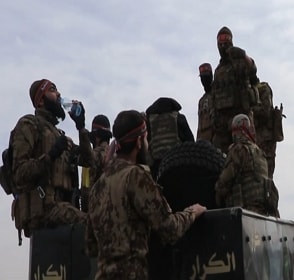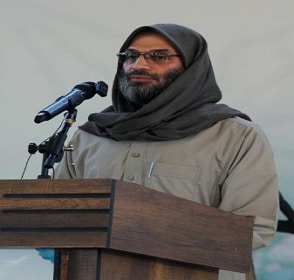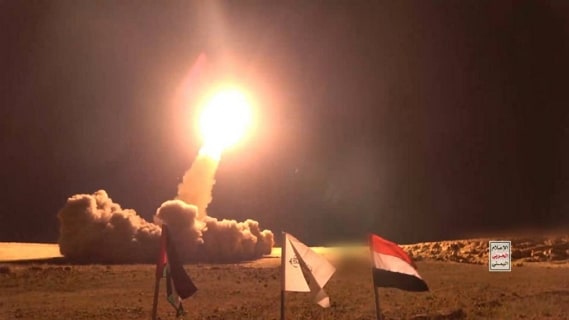The following report is now a complimentary offering from MEMRI's Jihad and Terrorism Threat Monitor (JTTM). For JTTM subscription information, click here.
A May 8, 2024, article on a Lebanese website, Nida' Al-Watan, known for its opposition to Hizbullah, reported that the war in Gaza had led to a rise of Sunni rhetoric similar to Hizbullah's in northern Lebanon's Sunni areas. The article argued that the October 7th attack on Israel benefitted the Muslim Brotherhood-linked Al-Jama'ah Al-Islamiyah [Islamic Group], which gained popularity in the region, as well as Hizbullah, which has long been eager to expand its footprint in a Sunni area where people have rejected its policies for years.[1]
Hizbullah Used Economic Relief To Increase Presence In Sunni Areas In Country's North
According to the news outlet, Hizbullah has long been trying to penetrate the northern Sunni region by inviting turbaned Sunni figures to appear at its festivals and to support its discourse and orientation. The article noted that Hizbullah's timid presence in the north changed when Lebanon suffered an economic crisis and living conditions declined, allowing Hizbullah to take advantage of the situation and enter Akkar, Tripoli, and Miniyeh, offering economic relief.
Hizbullah further expanded its activity in Sunni areas, the piece argued, following the retreat of Saad Al-Hariri from political life, allowing Hizbullah to approach Sunni figures and institutions. The Sunni establishment "began to deal with it as any other Lebanese party" that sought to help, following years of rejection.
Al-Jama'ah Al-Islamiyah And Hizbullah "Reaped The Fruits" Of Hamas's October 7th Attack
The October 7th attack on Israel served Hizbullah a "golden" opportunity, the article asserted, to boost its status in a Sunni area that already sympathized with any party that supported the Palestinian cause. Similarly, the Al-Jama'ah Al-Islamiyah seized the opportunity and identified with Hizbullah's position and approach, "reaping the fruits" of the "Al-Aqsa Flood" attack domestically.
"The Al-Jama'ah [Al-Islamiyah], which almost declined politically and popularly amid the evolution of [Al-Hariri's] Future Movement, returned to the scene with force, benefiting from the events in Gaza and the great sympathy with Hamas, with which it shares the same party doctrine," the article claimed.
The Sunni group replaced the Future Movement's politics with a "nerve-wracking religious rhetoric" and "an armed presence through the southern gate," said the report, adding that the group has been benefitting from the overwhelming "Sunni zeal" towards Gaza and Palestine, as well as "the need for [Sunni] leadership in the Sunni areas." This is especially true for youthful audiences, who naturally sympathize with the cause and are attracted by the speeches and positions that defend it.
Sunni "Fajr Forces" Fight In South With "Military And Field Coordination"
Highlighting the significant surge of the Al-Jama'ah Al-Islamiyah politically and militarily, the report stressed that the Sunni youth had generally never heard of the group's "Fajr Forces" before October 7. However, the publication asserted, currently, a large number of them are trying to join the group's ranks with the aim of fighting Israel.
After October 7, the scene was completely reversed, said the report, arguing that the Sunni youth who enlisted in the past to counter any threat posed by Hizbullah to the Sunni public that rejected its policies, are now enlisting in the non-sectarian Lebanese "Resistance Brigades" force and the "Fajr Forces."
The report stressed that leaders of Al-Jama'ah Al-Islamiyah do not deny the existence of a "military and field coordination" with Hizbullah, but they also insist that the group does not receive orders related to field operations from Hizbullah's leadership.
Mutual Needs, Interests
Hizbullah and the Al-Jama'ah Al-Islamiyah's need for each other is "mutual," the publication states. Hizbullah needs a Sunni faction to dispel the notion that it is leading the country into fighting alone on behalf of all the Lebanese. Meanwhile, the Sunni group, Al-Jama'ah Al-Islamiyah, found an opportunity to regain popularity in areas where its parliamentary and popular presence had been prominent in the past.
[1] Nidaalwatan, May 8, 2024.
The full text of this post is available to subscribers.
Please login or register to request subscription information from MEMRI






